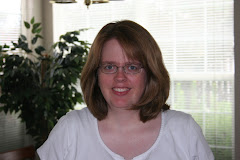This last weekend I had the chance to attend the "Life, the Universe & Everything: The Marion K. “Doc” Smith Symposium on Science Fiction and Fantasy" held at Brigham Young University in Provo, UT. I was unable to attend the full three days of the symposium, but loved every minute that I did catch. For anyone interested I will post what I learned at the symposium a lit bit each day:
“3 Things You Must Learn to Write Killer Stories” workshop
by John Brown
(Note: I did not realize this was a two our workshop. As such, I didn't show up until it was half over. I will still pass on what I did learn while I was there.)
- Identify generally what I I'm doing with the story
- There are five things to keep in mind with a story
1) Plot
2) Problem
3) Setting
4) Character
5) Text
- Figure out how all those parts fit together
- Creativity is - you have a problem and you come up with a solution
So how do you get started developing a story:
Part 1: Gather Material
- Always be looking for material. You must feed your beast. Look for "zings" that attract, whether they might make a good plot idea, character idea, etc, and write them down in a "zing" file to look at later.
Warning: You must have zings in all five areas to have a good story.
Part 2: Ask Questions
- Look at material and write down what your first thoughts are when you focus on a particular "zing"
- Develop those initial thoughts
Prinicples to help you stay in the writing mode:
#1 -
Make enough time.
- 10 hours minimum per week would be best. Find any moment you can to do something related to writing. To make the time inbetween your work sessions try to write down a question you need to think about and keep it with throughout the day. Pull it out when you get a chance to remind yourself of the question. If you come up with the answer to the question at any point immediately write it down so that you can look at it again during your next writing session.
#2 - Follow your "zing"
- If you find a great zing, then play with it, mess with it and develope it until you've exhausted it.
#3 - Practice "Farmer's Faith"
- Throw all the crap you can on the garden of you mind and have faith that something will grow from it.
#4 - Writer's Block is a gift (it is your "spidey sense")
- When you get writer's block your mind is trying to tell you one of four things:
- Your out of material
- You know what to write, but you don't want to write it
- You have "perfection" stress
- You're overwhelmed and need to try and break your work up into baby
steps
#5 - Keep yourself on the move
- Make a decision, get out, and move
Excercises to help you in your writing (a.k.a. 10-20s)
These excercises should help you to identify patterns of things that interest you in order to help improve your writing:
1) write 10-20 story ideas
2) figure out 10-20 problems that would be good in a story
3) go through 10-20 cycles of writing down a problem and figuring out how to resolve it
4) determine 10-20 people in life that I'm drawn to and write down what draws me to them
5) determine 10-20 things or actions that cause me to root against someone
6) write down 10-20 "zings"
7) be on the lookout for story questions (i.e. why would my character act that way?)
8) work on writing or writing related activities 10-20 hours per week
That's it for today ladies and gentlemen. Keep an eye out for the next installment of fabulous knowledge gained at the LTUE tomorrow.





















